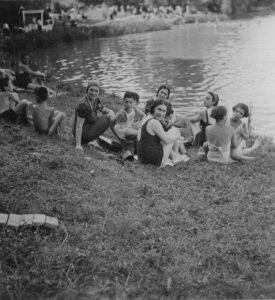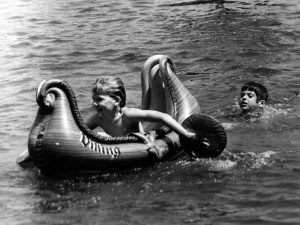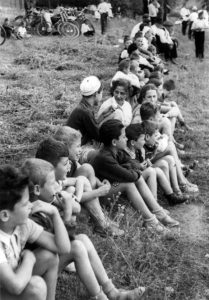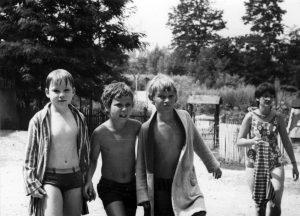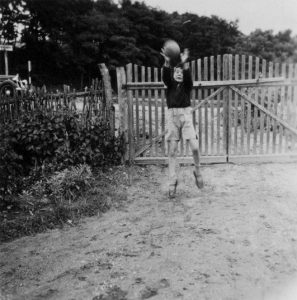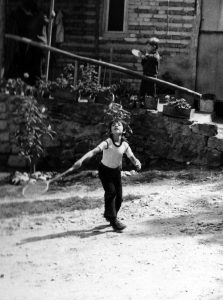by Eszter Neumann and Melinda Kovai
The AnBlokk Association conducted the „Counter-pedagogy under State Socialism” research&education program between February 2011 and January 2013. The project explored a particular experimental pedagogic space in State-Socialist Hungary. From the late 1930’s to the 1970’s, each summer, Eszter Leveleki, a teacher trained and inspired by the flourishing reform-pedagogic scene of the 1920s and 1930s, organized her private summer vacation in a small lakeside village 60 kms north from Budapest. Attracting children mostly from artist-intellectual families, she created a unique world. Pipecland was a constitutional monarchy with a special mythology which celebrated the values of spontaneity, individual and collective creativity and the community’s power to “form collective experiences”.
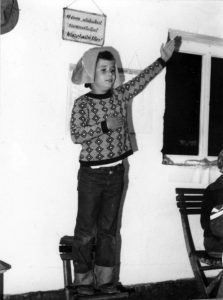
With the radical political change of the 1950s, precisely by preserving and reviving the “bourgeois” past, the summer vacation took on new political meanings. From the 1950s onwards, the vacation functioned as a pedagogical experiment and a counterspace of the official pioneer camps and dogmatic pedagogical regime. The devotion to foster the mythology of Pipecland developed into a critique of the teleological logic of the Socialist system and its official pedagogy. The small community socialized the children to express a sarcastic critic of existing Socialism expressed through various artistic performances. As a characteristic phenomenon of the era, it was organized semi-legally by a community held together by strong informal and personal ties. The friendship groups forged at the summers spent at the Bánk lake sustained for decades and continues to determine the identity and personal relations of the former participants.
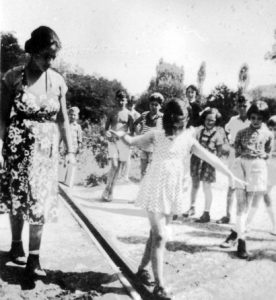
With the involvement of university students, we conducted 22 narrative life-story interviews with the former participants. The biographic narratives guided by the question about what the summer vacation meant for them conveyed a more general message about the social functions of informal social enclaves, and the complicated relation of the cultural elites to political power in State Socialist Hungary. The interviews starkingly showed how established class differences were performed in a regime that directly targeted the dissociation of political power and social capital and the elimination of class distinctions.
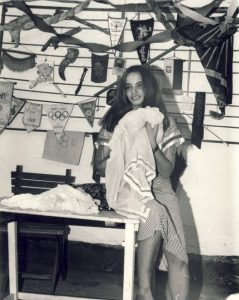
We soon realized that the rich material legacy (diaries, postcards, photos, original videos, flags, various awards and prizes, tools for the games, opera librettos, etc.) are just as essential part of the collective memory of the vacation as the narrative recollections. We contacted the two key actors, the self-appointed “museologists” of Bánk, and we started to process the material heritage first by organizing a small documentary exhibition; later we were invited to contribute to an exhibition at the Museum of Ethnography in Budapest. The exhibition in 2015 presented the material and visual relics of Pipecland along with excerpts of our interviews with the former participants. The exhibition and its side-events aimed to trigger discussion about the memory of State Socialism, and the controversies of the heritage of an exclusivist cultural reproduction strategy and sarcastic political stance so much characteristic of the Hungarian intellectual elite. The online version of the exhibition can be viewed here.
* The pictures are amateur photos made by parents and participants of the summer camps and these pictures are now archived as part of the museum’s collection.
Authors contacts:

